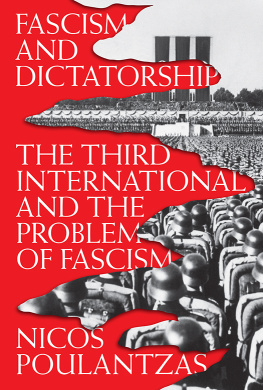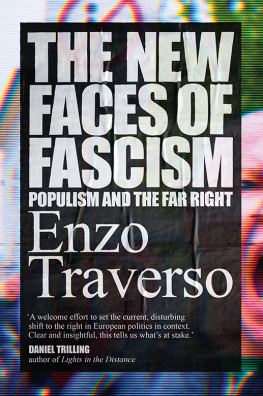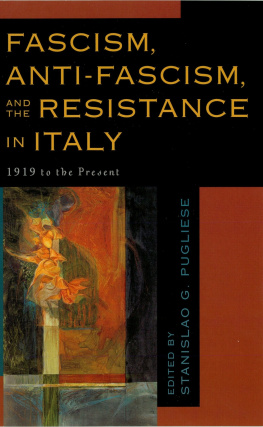Fascism in the Contemporary World
Other Titles of Interest
Self-Determination: National, Regional, and Global Dimensions, edited by Yonah Alexander and Robert A. Friedlander
Terrorism: Theory and Practice, edited by Yonah Alexander, Paul Wilkinson, and David Carlton
Radicalism in the Contemporary Age (3 vols.), edited by Seweryn Bialer and Sophia Sluzar
Strategies Against Violence: Design for Nonviolent Change, edited by Israel W. Charny
Nations and States: An Enquiry into the Origins of Nations and the Politics of Nationalism, Hugh Seton-Watson
The Relevance of Liberalism, edited by the Research Institute on International Change
A Westview Special Study
Fascism in the Contemporary World: Ideology, Evolution, Resurgence
Anthony James Joes
Central to this book is the assertion that fascist regimes similar in ideology and style to Mussolini's in Italy have arisen and will continue to arise in the underdeveloped world. The author views fascism as a definite responseauthoritarian corporatist nationalismto certain problems common to late-developing nations, not as an aberration that can be exorcised or explained away. He explores similarities between past and contemporary fascism and seeks to explain in what circumstances fascism develops, to whom it is attractive, and what its reemergence signifies for us. Single-factor explanatory strategies are explicitly rejected.
This is the first attempt to systematically link fascist ideology and practice in Europe to that in the Third World. Professor Joes discusses ten countries in some detail, stressing the political and economic milieu in which fascism develops an appeal. He explores the relative strengths of competing world views (liberal democracy, Leninism) and seeks to show how contemporary military dictatorships develop similarities to classical fascism.
Anthony J. Joes, associate professor of political science at St. Joseph's College, Philadelphia, holds a Ph.D. in politics from the University of Pennsylvania. Professor Joes's articles have appeared in ORBIS, Comparative Political Studies, Worldview, and The Illinois Quarterly.
Fascism in the Contemporary World: Ideology, Evolution, Resurgence
Anthony James Joes
Foreword by A. James Gregor
First published 1978 by Westview Press
Published 2019 by Routledge
52 Vanderbilt Avenue, New York, NY 10017
2 Park Square, Milton Park, Abingdon, Oxon OX14 4RN
Routledge is an imprint of the Taylor & Francis Group, an informa business
Copyright 1978 by Taylor & Francis
All rights reserved. No part of this book may be reprinted or reproduced or utilised in any form or by any electronic, mechanical, or other means, now known or hereafter invented, including photocopying and recording, or in any information storage or retrieval system, without permission in writing from the publishers.
Notice:
Product or corporate names may be trademarks or registered trademarks, and are used only for identification and explanation without intent to infringe.
Library of Congress Cataloging in Publication Data
Joes, Anthony James.
The rise of fascism in the contemporary world.
(Westview special studies in social, political, and economic development)
Bibliography: p.
1. Fascism. I. Title.
JC481.J53 320.5'33 77-14141
ISBN 13: 978-0-367-01749-1 (hbk)
For Chris
At some time in the not too distant future, political analysts will reflect upon the curious intellectual perversity that led the academicians of our time to imagine that the revolutions that characterize the twentieth century were somehow inspired by Marxism. They will fail to appreciate the noncognitive influences that led our pundits to accede to the conventional wisdom that they had learned as undergraduates. They will fail, in all probability, to comprehend the influence exercised by the pervasive prejudices of our epoch.
These future analysts will understand only that the Marxism of Marx and Engels predicted revolution in advanced industrial environments environments afflicted with the "imbecility of overproduction," peopled by men who, in the "vast majority," were reduced to the status of "proletarians." Understanding that, they will fail to comprehend why our professional political analysts insisted on characterizing revolutions in underdeveloped countries, among populations anything but "proletarian," as "Marxist" or "Marxist-oriented."
The fact is that contemporary revolution has precious little to do with the Marxism left as an intellectual heritage by Marx and Engels. Engels, for his part, has insisted that socialist revolution could occur only in circumstances typified by "massive industrialization." Marx, in turn, had insisted that "no social order ever disappears before all the productive forces, for which there is room in it, have been developed; and new higher relations of production never appear before the material conditions of their existence have matured in the womb of the old society."
The twentieth century, however, has suffered a series of revolutions that pretend to introduce "new higher relations of production" on the basis of precapitalist and preindustrial economic foundations. We have experienced revolution in environments afflicted not by industrial overproduction but by preindustrial stagnation. We have witnessed not revolution by the "vast majority" of men reduced to the status of proletarians, but rather by peasant and petit bourgeois masses mobilized by an exiguous minority of declassed bourgeois leaders. Nowhere have proletarians figured prominently in revolutionary calculation. The majority of Bolsheviks were of peasant origin, although there were indeed proletarians in their ranks. Most of the former were military deserters, recently of peasant origin. Mao's revolutionaries were still less proletarians. They were displaced peasants almost to the man.
More than that, these revolutions have not brought with them a libertarian order characterized by universal suffrage, referendum and recall, the restricted political mandates, the rotation in office, and the voluntary association of productive communes promised by Marx and Engels and identified as the "dictatorship of the proletariat." Rather the revolutions of our time have delivered single-party states, heirarchical associations, centralized and bureaucratized developmental and modernizing economies, the orchestration of mass "consensus," the prevalence of "charismatic leaders," the instauration of a military style of life, closed autarchic systems, exacerbated nationalism, control of information and communications media, commitment of a vast expansion of military capabilities, and an insistence on the restoration of "lost territories" to the nation.
Almost every revolution in our time has displayed some of these traits. And as such, none of them have anything to do with classical Marxism. These characteristics are, in fact, the defining traits of fascism.
However one chooses to characterize "fascism," it is clear that modern revolutions share more affinities with the fascism of Benito Mussolini than they do with the Marxism of Karl Marx or Friedrich Engels. This is so because Mussolini's fascism was perhaps the first exemplar of the modern, mass-mobilizing, developmental dictatorship that has become so commonplace. The revolutions that preceded fascism displayed only some of the traits it fully exhibited. The revolutions that followed have shared more and more of those same traits. As such, Italian fascism remains a recommended point of departure of any contemporary analysis of revolution. Classical Marxism, on the other hand, provides little insight and still less theoretical leverage.

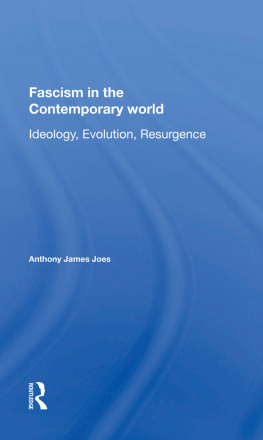
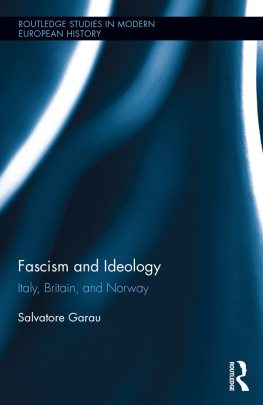


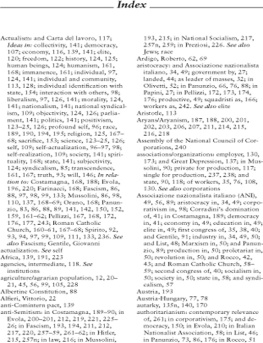
![Patrick G. Zander - Fascism through History [2 volumes]: Culture, Ideology, and Daily Life](/uploads/posts/book/262756/thumbs/patrick-g-zander-fascism-through-history-2.jpg)

